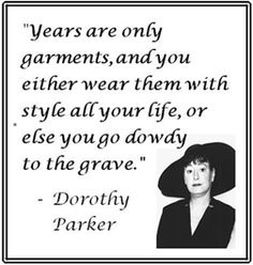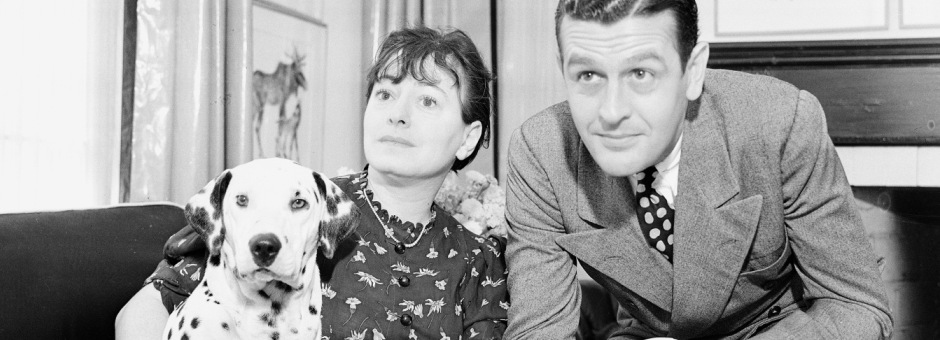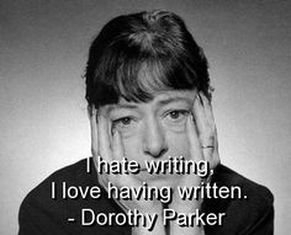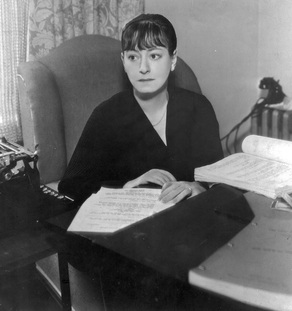Early Life

Born August 22, 1893 in summer home in West End, New Jersey
Parents J. Henry and Elizabeth Rothschild
Grew up on Manhattan’s Upper West Side
Unhappy childhood
Mother and step-mother died when she was young
Uncle, Martin Rothschild, went down on the Titanic in 1912
Father died in 1913
Attended a Catholic grammar school
Finishing school in Morristown, NJ
Formal education abruptly ended when she was 14
Never received a high school diploma
Parents J. Henry and Elizabeth Rothschild
Grew up on Manhattan’s Upper West Side
Unhappy childhood
Mother and step-mother died when she was young
Uncle, Martin Rothschild, went down on the Titanic in 1912
Father died in 1913
Attended a Catholic grammar school
Finishing school in Morristown, NJ
Formal education abruptly ended when she was 14
Never received a high school diploma
Adult Life
“The first thing I do in the morning is brush my teeth and sharpen my tongue.”
Married stockbroker Edwin P. Parker
Marriage was tempestuous and divorced in 1928
Became a founding member of the Algonquin Round Table in 1919, an informal gathering of writers at the Algonquin Hotel
Known as the “Vicious Circle” and included Robert Benchley, Harpo Marx, George S. Kaufman, and Edna Ferber
Known for its scathing wit and intellectual commentary
Friends with Ernest Hemingway, F. Scott Fitzgerald, socialites Gerald and Sarah Murphy
Had affairs with F. Scott Fitzgerald, Ring Lardner, Robert Benchley
Suffered from depression and alcoholism and attempted suicide
Married actor-writer Alan Campbell in New Mexico in 1934
Divorced in 1947
Remarried in 1950
Became a socialist in 1927 when involved in the Sacco and Vanzetti trial
Called before the House on Un-American Activities in 1955 but pleaded the Fifth Amendment (involved with the Communist party during the 1930s)
Husband died of an overdose in 1963
Found dead of a heart attack in a New York City hotel at age 73 on June 6, 1967
Bequeathed her literary estate to Dr. Martin Luther King, Jr.
Estate was turned over to the NAACP upon his assassination months later
Marriage was tempestuous and divorced in 1928
Became a founding member of the Algonquin Round Table in 1919, an informal gathering of writers at the Algonquin Hotel
Known as the “Vicious Circle” and included Robert Benchley, Harpo Marx, George S. Kaufman, and Edna Ferber
Known for its scathing wit and intellectual commentary
Friends with Ernest Hemingway, F. Scott Fitzgerald, socialites Gerald and Sarah Murphy
Had affairs with F. Scott Fitzgerald, Ring Lardner, Robert Benchley
Suffered from depression and alcoholism and attempted suicide
Married actor-writer Alan Campbell in New Mexico in 1934
Divorced in 1947
Remarried in 1950
Became a socialist in 1927 when involved in the Sacco and Vanzetti trial
Called before the House on Un-American Activities in 1955 but pleaded the Fifth Amendment (involved with the Communist party during the 1930s)
Husband died of an overdose in 1963
Found dead of a heart attack in a New York City hotel at age 73 on June 6, 1967
Bequeathed her literary estate to Dr. Martin Luther King, Jr.
Estate was turned over to the NAACP upon his assassination months later
Professional Life
|
Sold her first poem to Vanity Fair in 1914
Took an editorial job at Vogue at age 22 Took over for P.G. Wodehouse as drama critic at Vanity Fair in 1917 Published first short story, “Such a Pretty Little Picture," for Smart Set in 1922 Listed on the editorial board when the New Yorker debuted in 1925 Contributed poetry, fiction and book reviews as the “Constant Reader” Collections of poetry Enough Rope-1926 Sunset Gun-1928 Death and Taxes-1931 Collected fiction came out in 1930 as Laments for the Living Contributed articles to the New Yorker and Life Won the O. Henry Award in 1929 for her autobiographical short story “Big Blonde” Became a highly paid screenwriting team with Alan Campbell Worked for MGM and Paramount Received an Academy Award nomination for A Star Is Born in 1937 Inducted into the American Academy of Arts and Letters in 1959 Visiting professor at California State College in Los Angeles in 1963 |
Time Period
Dorothy Parker was born during the late nineteenth century but wrote mostly in the 1920s and 30s. The 1920s, also known as the Roaring Twenties, was a prosperous time and was full of partying and drinking illegally. Dorothy, a longtime alcoholic, thrived during this time. She continued writing during the Great Depression, which hit during the 1930s, and she is said to have been at one point the highest paid female writer in Hollywood during the Great Depression, earning $5,200 a week.
Dorothy lived during a time when crime was rampant and later when the stock market crashed and many people were unemployed. This was when the people of the United States needed humor, and that is what Dorothy delivered. When Dorothy began working for Vanity Fair in 1918, "the editor, Frank Crowninshield, commented: "We, as a nation have come to realize the need for more cheerfulness, for hiding a solemn face, for a fair measure of pluck, and for great good humour. Vanity Fair means to be as cheerful as anybody. It will print humour, it will look at the stage, at the arts, at the world of letters, at sport, and at the highly vitalized, electric, and diversified life of our day from the frankly cheerful angle of the optimist, or, which is much the same thing, from the mock-cheerful angle of the satirist"" (Simin, 1997). Despite her usual dark subject matter and depressing poems, Dorothy was sarcastic, witty, and entertaining, which is what the people needed at that time.
Dorothy lived during a time when crime was rampant and later when the stock market crashed and many people were unemployed. This was when the people of the United States needed humor, and that is what Dorothy delivered. When Dorothy began working for Vanity Fair in 1918, "the editor, Frank Crowninshield, commented: "We, as a nation have come to realize the need for more cheerfulness, for hiding a solemn face, for a fair measure of pluck, and for great good humour. Vanity Fair means to be as cheerful as anybody. It will print humour, it will look at the stage, at the arts, at the world of letters, at sport, and at the highly vitalized, electric, and diversified life of our day from the frankly cheerful angle of the optimist, or, which is much the same thing, from the mock-cheerful angle of the satirist"" (Simin, 1997). Despite her usual dark subject matter and depressing poems, Dorothy was sarcastic, witty, and entertaining, which is what the people needed at that time.



